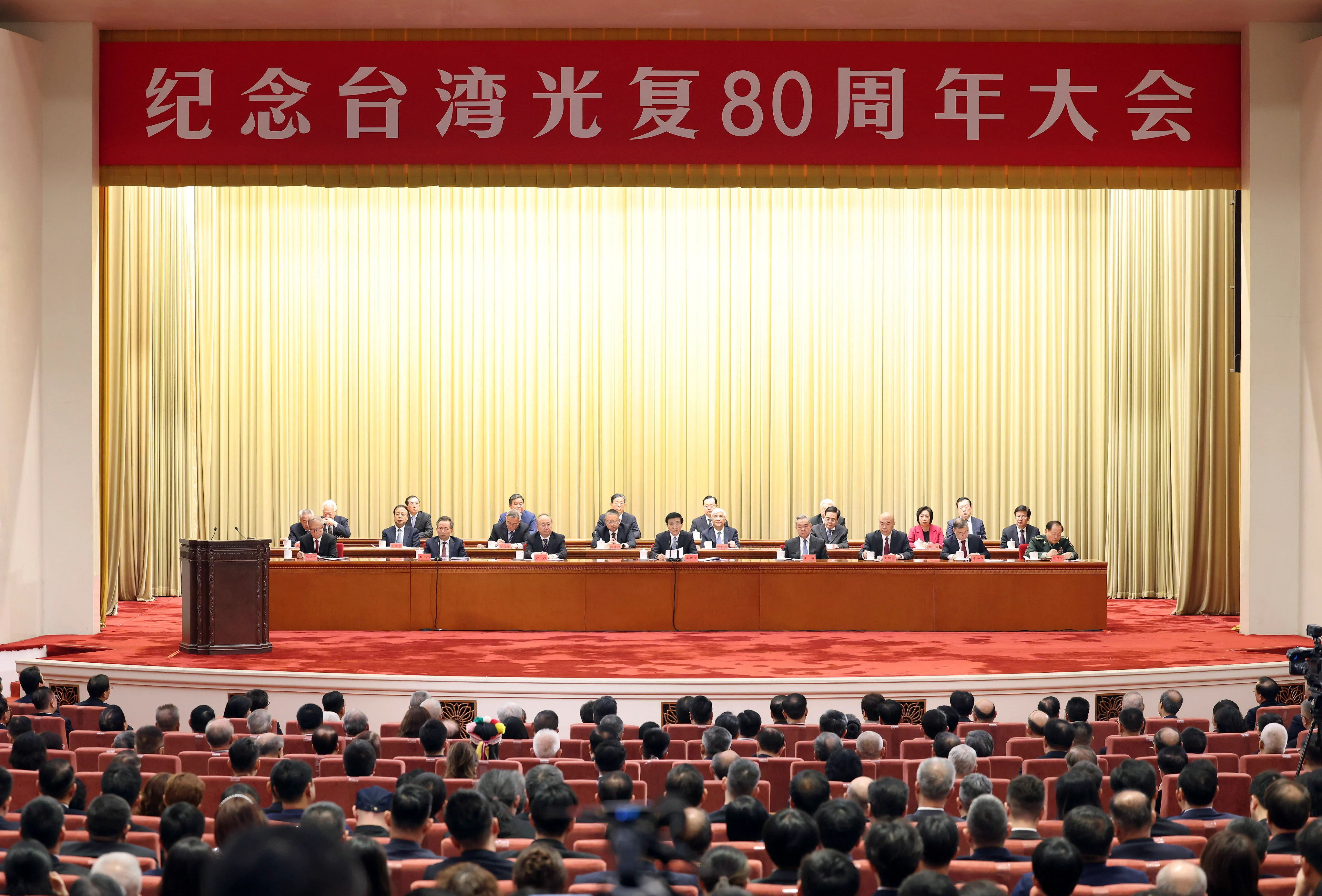Copyright scmp

Beijing will leave no room for any form of “Taiwan independence” separatist activities, one of Beijing’s most senior leaders said on Saturday, marking the 80th anniversary of the island’s return from Japanese rule. “We should work together to advance the cause of national reunification and must leave no room for any form of ‘Taiwan independence’ separatist activities,” Wang Huning, Beijing’s No 4 official and top political adviser, said at an event to commemorate “Taiwan Restoration Day”. “[We] must continue to deepen cross-strait exchanges and integration, and foster a shared sense of Chinese national identity.” Wang made the comments a day after the National People’s Congress Standing Committee formally designated October 25 as an annual day to commemorate Taiwan’s return to Chinese sovereignty after five decades of Japanese occupation. Beijing’s ratification of the day was seen as another move to assert its sovereignty over the self-ruled island. “[Ratifying Taiwan Restoration Day] demonstrates the Chinese Communist Party’s steadfast commitment to its historical mission and its unwavering determination to achieve the complete reunification of the motherland,” state news agency Xinhua quoted Wang as saying. Taiwan Affairs Office director Song Tao said the decision was one “made personally” by President Xi Jinping, according to Xinhua. The decision dovetailed with the party’s call to “advance the great cause of national reunification” as part of the next five-year plan, a blueprint endorsed by the Central Committee at a gathering that ended on Thursday. The party sees the next five years as pivotal in Beijing’s attempts to gain a stronger footing in its rivalry with Washington. Beijing views Taiwan as its core interest and has repeatedly stressed in its dealings with other countries – particularly the United States and its allies – that the island is a red line that should not be crossed. Beijing sees Taiwan as part of China to be reunited by force if necessary. Most countries, including the US, do not recognise Taiwan as an independent state, but Washington is opposed to any attempt to take the self-ruled island by force and is committed to supplying it with weapons. Wu Xinbo, dean of the Institute of International Studies at Fudan University in Shanghai, said the ratification was a direct response “to certain narratives – especially in the United States – that attempt to promote the ‘undetermined status’ of Taiwan”. A spokesperson from the American Institute in Taiwan, Washington’s de facto embassy, used the phrase in September, saying Taiwan’s international status remained undetermined. The comments prompted anger in Beijing – as did German Foreign Minister Johann Wadephul when he said in an interview with Reuters on Thursday that Germany could “design” its own one-China policy. “Our one-China policy continues unchanged – and we decide on its design. This also includes that there must be no violent change of the status quo,” Wadephul said. Beijing responded by urging Germany to “strictly follow” the one-China principle and against any “Taiwan independence” separatist activities. A day later, Germany’s foreign ministry announced it had cancelled Wadephul’s first China trip. Wu said that ratifying October 25 as Taiwan Restoration Day “underscores a basic fact – Taiwan is part of China”. “I believe the process of national reunification has already begun. As for when it will be fully completed, that will depend on internal and external conditions, but I believe it will happen in the not-too-distant future,” he said. Fu Qianshao, a mainland military aviation analyst, said ratification also reflected the mainland’s “earnest wish” for reunification with the island. Among those at the commemoration in Beijing on Saturday was Wu Rongyuan, chairman of Taiwan’s Labour Party. Others from the island had been invited to the event but Taipei had warned against attendance. Saturday marks the 80th anniversary of the surrender of the Japanese forces in Taiwan to the then ruling Kuomintang. It ended Japan’s 50-year occupation of the island that started in 1895 when the Qing government ceded Taiwan in a defeat to Tokyo. The Kuomintang fled to Taiwan after losing to the Communist Party in China’s civil war in 1949.



